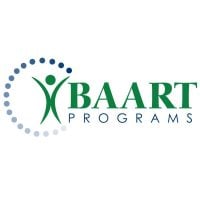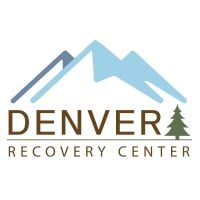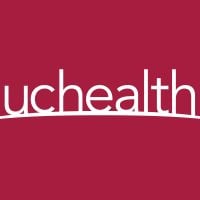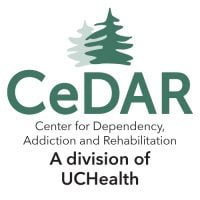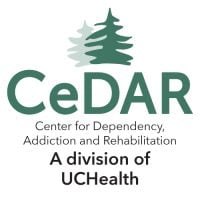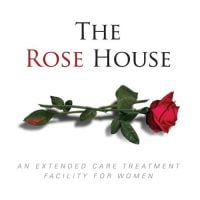About BAART Programs in Colorado
BAART Programs in Brighton, Colorado is a comprehensive addiction treatment facility, providing care for a variety of needs for those suffering from substance abuse and addiction. They provide a range of levels of care including outpatient services, detoxification and aftercare support. BAART is also affiliated with the larger BAART Programs organization, giving them access to a larger network of resources.
BAART Programs specializes in providing effective treatments for substance abuse and opioid addiction. They offer both individual and group therapies tailored to fit the needs of each client. The facility is also certified to provide Dual Diagnosis, a unique approach that focuses on helping clients to manage both their mental health and their addiction. Furthermore, BAART Programs accepts private health insurance, making treatment more accessible. All services are provided under the oversight of certified medical and mental health professionals, licensed by the state of Colorado.
Genders
Ages
Modality
Additional
Conditions and Issues Treated
Substance abuse is the excessive use of any drug. This includes alcohol, medications, and illegal drugs. Substance abuse is treated with a combination of physical and mental treatments. Patients detox and follow up with therapies that target the underlying cause of the addiction. Substance abuse is a severe problem that can be successfully treated with a variety of therapies. BAART Programs treatment uses a combination of therapies along with other resources to overcome substance abuse.
Opioid addiction treatment should be done in a medically supervised drug rehab. While taking opioids, users will typically use other substances to enhance the effects of opioids or to reduce the adverse effects of opioid use. Opioid addiction treatment will include detoxification and drug rehab counseling to help both the user and their loved ones learn how to live a successful sober lifestyle.
Treatments such as methadone, buprenorphine, and naltrexone are three medications that can help treat opioid addiction. These drugs work on the brain’s pleasure center and reduce cravings and the effects of illicit opioids such as heroin. These drugs can be either given orally or by injection. Individual drug rehab counseling sessions can be helpful to discuss any questions or concerns with the drug treatment program. This counseling will also help the user set goals for when they finish drug rehab.
Opioid addiction recovery is a long process. Many of the changes to the brain caused by opioid use cannot be undone, but with time and the proper treatment, a person can return to normal function. After detox, treatment will include drug rehab counseling and entering a halfway house or sober living community. Aftercare is critical to long-term recovery, as it helps the user avoid relapsing and entering back into drug rehab.
Levels of Care Offered
This center offers a variety of custom treatment tailored to individual recovery. Currently available are Aftercare Support, Detox, Drug Rehab, Outpatient, with additional therapies available as listed below.
An addict may have to go through alcohol or drug withdrawal. While detox may be uncomfortable, it is not life-threatening. Detoxification allows the addict to rid the body of all traces of drugs or alcohol and gives the addict a clean slate for their recovery. In an inpatient or outpatient setting, detox can be managed medically.
“Outpatient treatment is ideal for those who have a lower intensity addiction. It’s also suitable for those with a supportive environment and those on a tight budget.
Outpatient treatment can be considered the lowest intensity level of addiction treatment. It is ideal for early phase addiction or lower intensity addictions. It may involve weekly sessions instead of daily. Peer group support, 12-step programs, and individual counseling may still be used and anti-addiction medication.
Aftercare support is vital to those who have completed a drug or alcohol treatment program. This support comes in individual and family counseling, treatment of psychiatric and other medical conditions, and medications to reduce cravings. It helps recovering addicts adjust to normal day-to-day activities and can last for a year or longer.
The majority of drug and alcohol addicts who receive aftercare treatment do not relapse. It is estimated that without aftercare, the relapse rate will be between 70 to 90 percent for most people. Aftercare is the final stage in addiction recovery, but it will also help maintain sobriety if relapse does occur.
Therapies & Programs
No single treatment works for all addicts; therefore, the goal of treatment and therapy should be to find what works best for each individual. Some people requiring addiction treatment may only need a few weeks of inpatient care. Others will require long-term residential care. Tolerance and withdrawal levels vary from person to person and thus affect the intensity of the treatment needed.
If an individualized approach to treatment and therapy is not offered, addicts may fail to reap benefits from their efforts. Professionals must customize plans according to their patient’s needs, limitations, and strengths. The goal of all forms of addiction treatment should be for addicts to find healthy ways to cope with their addiction and its underlying causes.
Group therapy is held in a safe, controlled setting where patients can feel comfortable sharing their struggles and gaining perspective through shared conversations. It takes place in a group rather than one on one to prevent feelings of isolation or being unique in their situation while creating an environment for addicts at BAART Programs to develop fellowship, accountability, and support. Group therapy is an important tool in recovery that prevents cravings that prompt a return to active addiction.
Life skills training is beneficial for addicts in recovery because it helps them learn how to take care of themselves and improve their quality of life, which can promote feelings of purpose and motivation.
This type of treatment works by teaching individuals life-enhancing skills that support positive living, including:
- Healthy lifestyle habits
- Skills to effectively manage stress
- Effective communication skills to help them get their needs met without turning to drugs or alcohol
- Money management and budgeting skills so they can continue to take care of themselves after treatment ends.
Payment Options Accepted
For specific insurance or payment methods please contact us.
Is your insurance accepted?
Ask an expert, call (888) 674-0062
BAART Programs Associated Centers
Discover treatment facilities under the same provider.
- BAART - Beverly, CA Methadone Treatment in Los Angeles, CA
- BAART Programs - Southeast in Los Angeles, CA
- BAART Programs - Oakland in Oakland, CA
- BAART Programs - Newport in Newport, VT
- BAART Programs - St. Johnsbury in Saint Johnsbury, VT
Learn More About BAART Programs Centers
Additional Details
Specifics, location, and helpful extra information.
Brighton, Colorado 80601 Phone Number(720) 909-6008 Meta DetailsUpdated November 25, 2023
Staff Verified
BAART Programs Patient Reviews
There are no reviews yet. Be the first one to write one.
Brighton, Colorado Addiction Information
The Centennial State has slipped to a ranking of 12th in the country for drug abuse. Each year around 24% of the state's population uses illegal drugs while nearly 5% of its population abuses alcohol. Substance-related deaths in Colorado were responsible for 15.12% between 2008 and 2017. Fortunately, Colorado drug and alcohol addiction treatment are available to help a person overcome addiction.
Drug addiction and abuse can have a big impact on the community in Brighton, Colorado. Brighton's most commonly used drug is marijuana, followed by cocaine and methamphetamine. From 2013 to 2017, the age-adjusted rate of drug overdose deaths in Brighton increased by 43%. The community in Brighton is very supportive of people who are trying to recover from addiction, and there are many resources available to help people in recovery.
Treatment in Nearby Cities
- Montrose, CO (194.0 mi.)
- Limon, CO (78.3 mi.)
- Greenwood Village, CO (26.4 mi.)
- Estes Park, CO (45.8 mi.)
- Salida, CO (118.5 mi.)
Centers near BAART Programs
The facility name, logo and brand are the property and registered trademarks of BAART Programs, and are being used for identification and informational purposes only. Use of these names, logos and brands shall not imply endorsement. RehabNow.org is not affiliated with or sponsored by BAART Programs.
